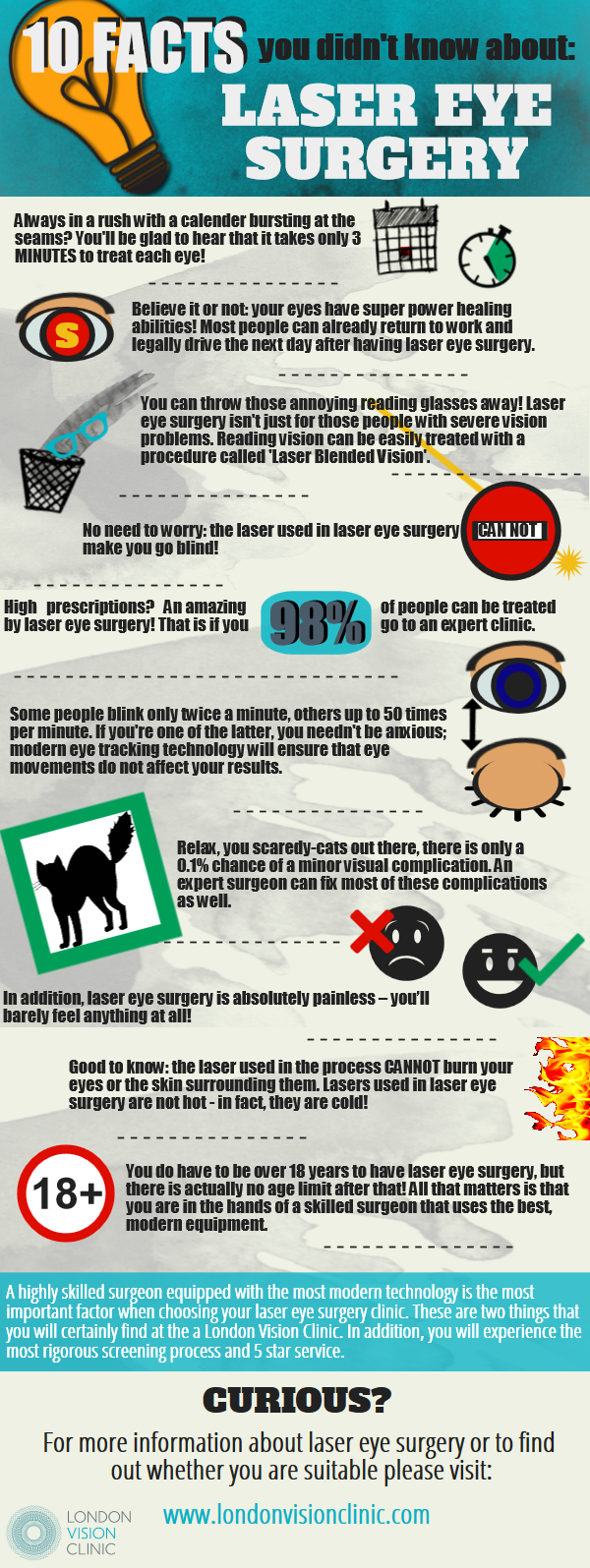Refractive Lens Exchange Explained: What Your Ophthalmologist Isn't Telling You
Refractive Lens Exchange Explained: What Your Ophthalmologist Isn't Telling You
Blog Article
Developed By-Macdonald Wollesen
Have you ever thought about Refractive Lens Exchange (RLE) as an alternative for vision adjustment? While it isn't as extensively talked about as LASIK, RLE could be a game-changer for your vision. Lots of people forget its advantages, believing traditional methods are their only choice. But what are the genuine advantages, and what might your ophthalmologist not be informing you concerning this treatment? Allow's check out the ins and outs of RLE with each other.
Understanding Refractive Lens Exchange: The Fundamentals
Refractive lens exchange (RLE) is a surgical procedure that can considerably boost your vision, particularly if you're handling presbyopia or severe refractive mistakes.
Throughout RLE, your eye doctor eliminates your eye's natural lens and changes it with a synthetic one customized to your vision requires. This procedure can correct nearsightedness, farsightedness, and astigmatism, giving you more clear vision without depending on glasses or call lenses.
The surgical procedure is usually fast, taking less than an hour, and many patients experience marginal pain. Healing is relatively quickly, permitting you to return to your daily activities soon after.
If you're considering RLE, talking to your optometrist can assist you establish if it's the right option for you.
Key Differences In Between RLE and Traditional Cataract Surgery
While both refractive lens exchange (RLE) and conventional cataract surgical procedure include changing the eye's natural lens, their primary goals and client profiles vary significantly.
RLE is focused on people looking for to reduce their dependancy on glasses or call lenses because of refractive errors, frequently prior to cataracts develop. In contrast, typical cataract surgical treatment typically targets individuals who have actually established cataracts, which cloud the lens and harm vision.
The lenses used in RLE can offer a wider range of vision improvement, while standard cataract surgical treatment usually includes basic monofocal lenses.
In addition, RLE prospects are commonly more youthful and in great overall wellness, whereas cataract patients may be older and have various other wellness concerns.
Selecting the appropriate treatment depends on your details vision requirements and circumstances.
Possible Advantages and Considerations of RLE
If you're considering refractive lens exchange (RLE), you'll find a number of potential benefits that may improve your quality of life.
RLE can supply you with clearer vision, decreasing or removing the requirement for glasses or get in touch with lenses. It supplies an opportunity to address presbyopia and other refractive mistakes concurrently, typically boosting your total visual acuity.
Additionally, https://health.economictimes.indiatimes.com/news/diagnostics/novel-method-could-improve-lasik-eye-surgery/68390819 can be an excellent option if you're not an ideal candidate for LASIK. Nonetheless, it is very important to evaluate the factors to consider, like the expense, possible dangers, and the recuperation duration.
Reviewing your certain demands with your eye doctor can help you make an informed decision, guaranteeing you choose the most effective path for your vision modification.
Conclusion
In conclusion, refractive lens exchange provides an one-of-a-kind option for vision correction that surpasses what LASIK can provide. It's vital to weigh the advantages versus potential risks and costs before choosing. Don't think twice to ask your eye doctor the challenging questions to guarantee you totally understand the procedure and its implications for your vision. With the appropriate details, you can confidently select the very best option for your eyes and way of living.
